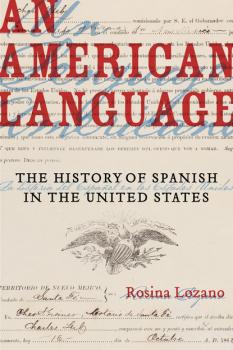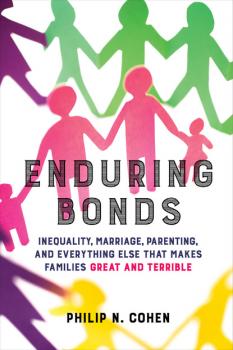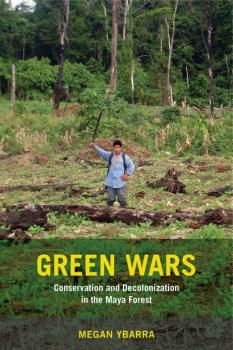MREADZ.COM - много разных книг на любой вкус
Скачивание или чтение онлайн электронных книг.Cane Toad Wars
In 1935, an Australian government agency imported 101 specimens of the Central and South American Cane Toad in an attempt to manage insects that were decimating sugar-cane harvests. In Australia the Cane Toad adapted and evolved with abandon, voraciously consuming native wildlife and killing predators with its lethal skin toxin. Today, hundreds of millions of Cane Toads have spread across the northern part of Australia and continue to move westward. The humble Cane Toad has become a national villain.<BR />  <BR /><I>Cane Toad Wars </I>chronicles the work of intrepid scientist Rick Shine, who has been documenting the toad’s ecological impact in Australia and seeking to buffer it. Despite predictions of devastation in the wake of advancing toad hordes, the author’s research reveals a more complex and nuanced story. A firsthand account of a perplexing ecological problem and an important exploration of how we measure evolutionary change and ecological resilience, this book makes an effective case for the value of long-term natural history research in informing conservation practice. 
Against Humanity
“Gunya is a woman in her late twenties. Soldiers of the Lord’s Resistance Army (LRA) abducted her when she was eleven years old and forcefully conscripted her into the rebel ranks. Gunya spent a little over a decade with the rebels before deserting. While there, she gave birth to a son with Onen, an LRA soldier. Though abducted, she expresses her continued support for the LRA and their tactics, admitting that she sometimes thinks of going back to the lum [bush] when life becomes hard as a civilian at home.”   This is not a book about crimes against humanity. Rather, it is an indictment of the very idea of humanity, the concept that lies at the heart of human rights and humanitarian missions.  Based on fieldwork in northern Uganda, anthropologist and medical doctor Sam Dubal brings readers into the inner circle of the Lord’s Resistance Army, an insurgent group accused of rape, forced conscription of children, and inhumane acts of violence. Dubal speaks with former LRA rebels as they find personal meaning in wartime violence, politics, and spirituality—experiences that observers often place outside of humanity’s boundaries. What emerges is an unorthodox and provocative question: What would it mean to be truly against humanity? And how does one honor life existing outside hegemonic notions of the good?
Strategies of Segregation
Strategies of Segregation unearths the ideological and structural architecture of enduring racial inequality within and beyond schools in Oxnard, California. In this meticulously researched narrative spanning 1903 to 1974, David G. García excavates an extensive array of archival sources to expose a separate and unequal school system and its purposeful links with racially restrictive housing covenants. He recovers powerful oral accounts of Mexican Americans and African Americans who endured disparate treatment and protested discrimination. His analysis is skillfully woven into a compelling narrative that culminates in an examination of one of the nation’s first desegregation cases filed jointly by Mexican American and Black plaintiffs. This transdisciplinary history advances our understanding of racism and community resistance across time and place.  
Capitalism
Virtually everyone—left, right, and center—believes that capitalist economies are autonomous, coherent, and regulated by their own internal laws. This view is an illusion. The reality is that economies organized around the pursuit of private profit are contradictory, incoherent, and heavily shaped by politics and governmental action. But the illusion remains hugely consequential because it has been embraced by political and economic elites who are convinced that they are powerless to change this system. The result is cycles of raised hopes followed by disappointment as elected officials discover they have no legitimate policy tools that can deliver what the public wants. In <I>Capitalism</I>, leading economic sociologist Fred L. Block argues that restoring the vitality of the United States and the world economy can be accomplished only with major reforms on the scale of the New Deal and the post–World War II building of new global institutions.
Japan
Japan: History and Culture from Classical to Cool provides a historical account of Japan’s elite and popular cultures from premodern to modern periods. Drawing on the most up-to-date scholarship across numerous disciplines, Nancy K. Stalker presents the key historical themes, cultural trends, and religious developments throughout Japanese history. Focusing on everyday life and ordinary consumption, this is the first textbook of its kind to explore both imperial and colonial culture and offer expanded content on issues pertaining to gender and sexuality. Organized into fourteen chronological and thematic chapters, this text explores some of the most notable and engaging aspects of Japanese life and is well suited for undergraduate classroom use.  
An American Language
"This is the most comprehensive book I’ve ever read about the use of Spanish in the U.S. Incredible research. Read it to understand our country. Spanish is, indeed, an American language."—Jorge RamosAn American Language is a tour de force that revolutionizes our understanding of U.S. history. It reveals the origins of Spanish as a language binding residents of the Southwest to the politics and culture of an expanding nation in the 1840s. As the West increasingly integrated into the United States over the following century, struggles over power, identity, and citizenship transformed the place of the Spanish language in the nation. An American Language is a history that reimagines what it means to be an American—with profound implications for our own time.
Canned
2019 James Beard Foundation Book Award winner: Reference, History, and Scholarship A century and a half ago, when the food industry was first taking root, few consumers trusted packaged foods. Americans had just begun to shift away from eating foods that they grew themselves or purchased from neighbors. With the advent of canning, consumers were introduced to foods produced by unknown hands and packed in corrodible metal that seemed to defy the laws of nature by resisting decay.   Since that unpromising beginning, the American food supply has undergone a revolution, moving away from a system based on fresh, locally grown goods to one dominated by packaged foods. How did this come to be? How did we learn to trust that food preserved within an opaque can was safe and desirable to eat? Anna Zeide reveals the answers through the story of the canning industry, taking us on a journey to understand how food industry leaders leveraged the powers of science, marketing, and politics to win over a reluctant public, even as consumers resisted at every turn.
Miller's Children
Miller’s Children is a passionate and comprehensive look at the human consequences of the US Supreme Court’s decision in the case of Miller v. Alabama, which outlaws mandatory life-without-parole sentences for juvenile murderers. The decision to apply the law retroactively to other cases has provided hope to those convicted of murders as teenagers and had been incarcerated with the expectation that they would never leave prison until their own death as incarcerated adults.    Psychological expert witness James Garbarino shares his fieldwork in more than forty resentencing cases of juveniles affected by the Miller decision. Providing a wide-ranging review of current research on human development in adolescence and early adulthood, he shows how studies reveal the adolescent mind’s keen ability for malleability, suggesting the true potential for rehabilitation.   Garbarino focuses on how and why some convicted teenage murderers have been able to accomplish dramatic rehabilitation and transformation, emphasizing the role of education, reflection, mentoring, and spiritual development. With a deft hand, he shows us the prisoners’ world that is filled, first and foremost, with stories of hope amid despair, and moral and psychological recovery in the face of developmental insult and damage. 
Enduring Bonds
In <I>Enduring Bonds</I>, Philip N. Cohen, renowned sociologist and blogger of the wildly popular and insightful <a data-saferedirecturl="https://www.google.com/url?hl=en&q=https://familyinequality.wordpress.com/&source=gmail&ust=1506571044423000&usg=AFQjCNFJ5dRQRLHGXB8zP3KQDwQ19ZFcfg" href="https://familyinequality.wordpress.com/" style="color: rgb(17, 85, 204); font-family: arial, sans-serif; font-size: 12.8px;" target="_blank">Family Inequality,</a> examines the complex landscape of today's diverse families. Through his interpretive lens and lively discussions, Cohen encourages us to alter our point of view on families, sharing new ideas about the future of marriage, the politics of research, and how data can either guide or mislead us. Deftly balancing personal stories and social science research, and accessibly written for students, Cohen shares essays that tie current events to demographic data. Class-tested in Cohen’s own lectures and courses, <I>Enduring Bonds </I>challenges students to think critically about the role of families, gender, and inequality in our society today. 
Green Wars
Global conservation efforts are celebrated for saving Guatemala’s Maya Forest. This book reveals that the process of protecting lands has been one of racialized dispossession for the Indigenous peoples who live there. Through careful ethnography and archival research, Megan Ybarra shows how conservation efforts have turned Q’eqchi’ Mayas into immigrants on their own land, and how this is part of a larger national effort to make Indigenous peoples into neoliberal citizens. Even as Q’eqchi’s participate in conservation, <I>Green Wars</I> amplifies their call for material decolonization by recognizing the relationship between Indigenous peoples and the land itself.









